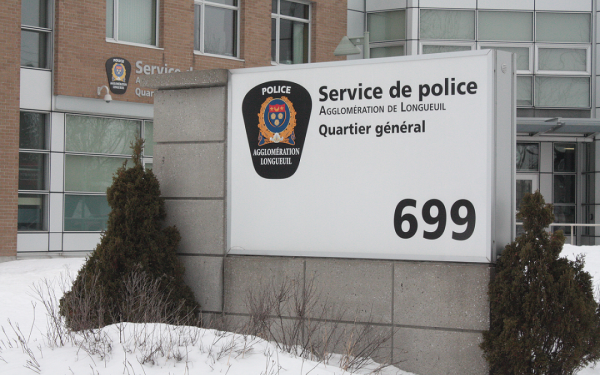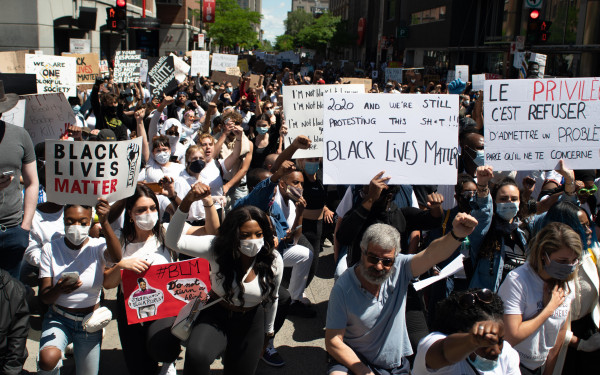Man Says Montreal Police Racially Profiled Him
Plans to File Complaints With the Quebec Human Rights and Youth Rights Commission
It was a night like any other, at least at first.
Andrew Denis-Lynch was going home with his girlfriend to her apartment in Côte-des-Neiges. They had just gone to get ice cream, and he wanted to cheer her up. As a joke, he danced a little jig while getting out his car. That’s when he was asked, “Why are you so happy?”
The question from a female police officer who had just pulled up by their car. It was soon followed by a question of whether Denis-Lynch was drunk, and whether the car he had just exited belonged to himself. But Denis-Lynch doesn’t drink, and he doesn’t smoke either.
Denis-Lynch, a Black man, is now bringing complaints of racial profiling to the Police Ethics Commissioner and the Quebec Human Rights and Youth Rights Commission.
The decision to do so came after his girlfriend Helena Backa, a Concordia student, decided to seek out advice from the Concordia Student Union Legal Information Clinic, who suggested they work with the Center for Research Action on Race Relations.
Denis-Lynch decided to share his experience publicly at a press conference in CRARR’s offices on March 19.
Soon after being stopped by police, tensions rose as police asked repeatedly for Denis-Lynch’s name and identification. There was some miscommunication. He figured it might have been due to a language barrier, and offered to write his name on the police officer’s pad. Soon after the officer called for backup, saying she would arrest him.
After Backa told the police they couldn’t arrest him without a cause, a short physical altercation followed. The female officer tried to grab Backa’s arm and Denis-Lynch pushed in to block her.
The couple said the female police officer was particularly aggressive and that they feared for their safety.
Backa believes that if it wasn’t for her being white, the situation would have likely escalated into a harsher punishment against Denis-Lynch. “This experience really helped me to understand what anti-Black bias and white privilege is,” she said.
A total of six police cars showed up to scene at some point, with six officers exiting their vehicles to surround the couple. After 20 minutes, Denis-Lynch was issued a ticket of $48, for quote “being a pedestrian and standing on the roadway to deal with the occupant of a vehicle.”
“Six police cars to deal with a young Black man for allegedly dancing in the middle of a small residential street, in front of his girlfriend’s car and house, at midnight—I wonder that a young white man would be treated the same way,” said Denis-Lynch. “This is exactly the kind of behaviour that makes Black people lose confidence in the police.”
Denis-Lynch said he decided to make his most recent experience public because it’s not the first time he and his Black friends have had these kinds of experiences with police in Montreal.
“I have white friends and I never hear these kind of stories from them,” he said.
Executive Director at CRARR, Fo Niemi, said that recently the center has been receiving similar complaints. “Since January of this year we started to get every week, every two weeks, people calling […] particularly black individuals talking about their often violent incidents with the police, and it seems to be a bit too often in the last three months.”

_900_702_90.jpg)



_600_375_90_s_c1.jpg)

